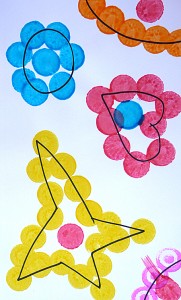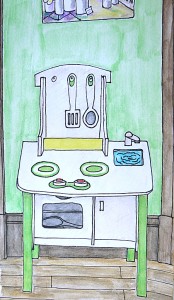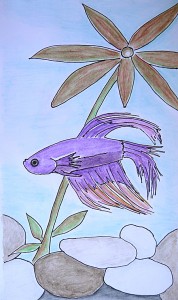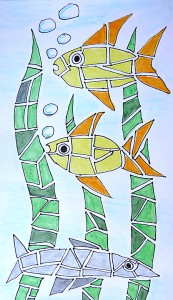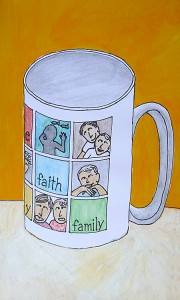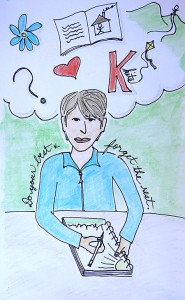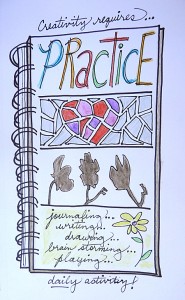Month: February 2016

Adoptive mother: My defiant child
I’ve been quiet over the last five months because of issues that have come up with our son that I’ve been struggling to share. Most of what I’ve shared on my blog has shown a positive light on our whole adoption experience; it is easy to share things when they are going well. However, the last several months have been challenging for my husband and I as we’ve been dealing with my 4 ½-year-old son’s anger issues which has led to very aggressive and defiant behavior at times causing us to desperately seek help from a counselor. Now that we’ve been getting professional help for a couple of months and we feel our son’s anger/defiant issues are slowly improving I’ve been able to reflect a bit on some things I’ve learned.
Below is a summary:
Behavioral issues are complicated: there are so many factors to one’s behavior (Ex: genetics, environment, individual personality, anxiety, developmental phases, trauma and/or adoption issues, medications, chemical imbalance) that it is difficult to pinpoint what one or more things contribute to any individual’s problem and how to help your child.
It is not unheard of for a 4-year-old to have trouble dealing with anger but my son’s reactions are sometimes much more extreme than other kids his age. He often times acts out defiantly and with aggression when he is angry if I tell him “No” to something. When in one of these tantrums he hits, bites, kicks, yells, says mean things and throws things. Sometimes these violent rages can last up to an hour or longer.
A term called ‘anger overload,’ coined by David Gottieb PhD, “refers to the intense anger response by the child to a perceived insult or rejection. The rejection can seem quite minor to parents or others.”
Anger overload is a term for any person with issues managing anger, not specifically adopted children, however the description of anger overload manifesting as oppositional defiant disorder happens to fit our son perfectly. We have been using the tips and suggestions David gave on how to deal with my son’s anger episodes and they have been helping for us although it’s a painfully slow process. We hope that with consistent guidance my son will continue to learn over time to manage his anger.
There are opposing theories about a term referred to as ‘primal wound’ – that ALL adopted children (even those adopted at birth) have trouble with attachment and/or anxiety due to abandonment issues.
This ‘primal wound’ theory took me by surprise because, naively, I assumed since we had a good birth family situation and a seemingly easy child his first few years of life that we were in the clear for “issues” coming up later so long as we provided a good environment for our child. According to this theory even children coming from a drug free pregnancy who were adopted at birth are affected by a sense of abandonment that never really goes away for them and it manifests in their lives later in life often as anxiety. According to Karl Stenske, adopted children react to the abandonment issues in one of two ways: they either act out and are difficult or are “quiet, adaptable and compliant” although inwardly these people struggle as much as the others. Dawn Davenport counters this primal wound theory in her article saying that, “many adopted person do not carry this ‘primal wound’, or if they are wounded the cut doesn’t go so deep.”
A 2008 study revealed that the odds of having an ADHD or oppositional defiant disorder (ODD) diagnosis were nearly twice as high in adoptees compared with non-adoptees.*
It always made sense to me that older children who were adopted would have more behavioral issues but I was surprised to hear that even those adopted at birth fell into this category. Again, keep in mind that behavioral issues are hard to pinpoint since so many issues affect someone’s behavior. However, in adoptive children if you take the abandonment issues into account that could explain some of this as anxiety often manifests itself as behavioral issues such as ADHD or ODD. I’m still struggling to find more information on specifics of those adopted at birth since most information lumps all adopted children into one category.
Children with anxiety (AKA: many adoptive children) have a higher rate of addiction later in life to addictive substances.
As our therapist explained it, for someone suffering with anxiety any addictive substance they try in life that might alleviate their feelings of anxiety will seem more appealing to them then it would to someone else trying the same addictive substance that does not suffer from anxiety. This is NOT to say that anyone with anxiety trying addictive substances will get hooked on them or that all adoptive children will become addicts; it just simply says their rate of addition will likely be higher than the rest of the population.
There are times when you might not like your child (adopted or biological) and that is OK.
There were a few times over the last 5 months when I found myself not liking my child. Although I never stopped LOVING him, this was devastating to me because before I always really liked him. But how to do you like someone who consistently hits you and is sometimes extremely difficult to manage? Unlike an abusive relationship with a spouse where you can potentially leave the situation, you can not just walk out on your child. As a Mom there were times where I really felt trapped. Luckily those feelings passed after getting help from a therapist. As his behavior improves these feelings of dislike diminish.
Behavioral issues in children are not necessarily a result of bad parenting.
There are times when a child’s behavior is NOT a reflection of the job the parent is doing. Some kids simply do not comply to what their parents say, no matter what the parents say or do. Sometimes a parent needs to step back and remind themselves that what their child is doing is not a direct reflection on them. Before any issues came up with our son I was guilty of judging parents of excessively difficult kids. Now that I’ve had a taste of parenting a child that is challenging I am much more understanding of parents of other defiant children. (My child is usually only difficult when he doesn’t get what he wants. Some children are challenging ALL of the time.) It is heart wrenching as a parent to not be able to control your child but sometimes your child is simply not in your control.
References:
Davenport, Dawn. “Primal Wound.” Creating a Family. October 1, 2012.
Gottlieb, David. “Anger Overload in Children: Diagnostic and Treatment Issues.” GreatKids.
*Park, Madison. “Adopted Children at Greater Risk for Mental Health Disorders.” CNN. April 14, 2010.
Stenske, Karl. “Adoptee View: What Can a Tiny Baby Know?” Adoption Voices Magazine. November 13, 2012.

